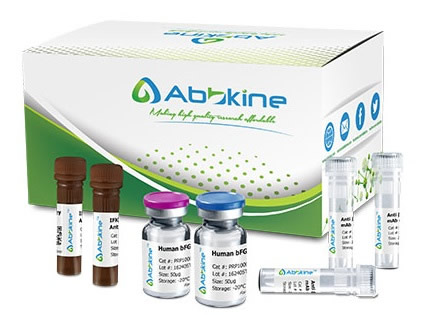Chemokine (C-C motif) ligand 17 (CCL17) (also known as TARC) is a small cytokine belonging to the CC chemokine family is also known as thymus and activation regulated chemokine (TARC). CCL17 is expressed constitutively in thymus, but only transiently in phytohemagglutinin-stimulated peripheral blood mononuclear cells. This chemokine specifically binds and induces chemotaxis in T cells and elicits its effects by interacting with the chemokine receptor CCR4. The gene for CCL17 is located on chromosome 16, in humans, along with other chemokines called CCL22 and CX3CL1.
Canine Thymus activation regulated chemokine (TARC) ELISA Kit employs a two-site sandwich ELISA to quantitate TARC in samples. An antibody specific for TARC has been pre-coated onto a microplate. Standards and samples are pipetted into the wells and anyTARC present is bound by the immobilized antibody. After removing any unbound substances, a biotin-conjugated antibody specific for TARC is added to the wells. After washing, Streptavidin conjugated Horseradish Peroxidase (HRP) is added to the wells. Following a wash to remove any unbound avidin-enzyme reagent, a substrate solution is added to the wells and color develops in proportion to the amount of TARC bound in the initial step. The color development is stopped and the intensity of the color is measured.
Canine Thymus activation regulated chemokine (TARC) ELISA Kit listed herein is for research use only and is not intended for use in human or clinical diagnosis. Suggested applications of our products are not recommendations to use our products in violation of any patent or as a license. We cannot be responsible for patent infringements or other violations that may occur with the use of this product.
bio-equip.cn




